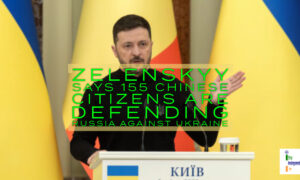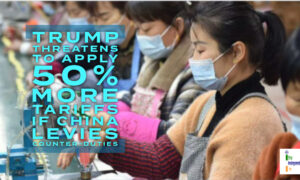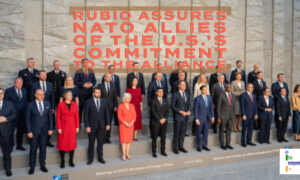
Amidst rising concerns of energy shortage, Germany and Poland have started exploring a new LNG project off Africa’s Western Coast
Amidst rising concerns of energy shortage, Germany and Poland have started exploring a new Liquefied Natural Gas (LNG) project off Africa’s Western Coast.
The said project is only 80% complete. The initial field near Senegal and Mauritania’s coastlines is expected to contain about 15 trillion cubic feet (425 billion cubic meters) of gas, 5 times more than what Germany used in all of 2019. But production isn’t expected to start until the end of next year.
The West is committed to reduce dependence on Russian energy amidst increase tension owing to Russia’s invasion of Ukraine and sanctions imposed by the West.
An Executive for Project Co-Developer BP – Gordon Birrell said, “Current world events are demonstrating the vital role that [liquid gas] can play in underpinning the energy security of nations and regions.”
While Africa’s natural gas reserves are vast and North African countries like Algeria have pipelines already linked to Europe, a lack of infrastructure and security challenges have long stymied producers in other parts of the continent from scaling up exports. Established African producers are cutting deals or reducing energy use so they have more to sell to boost their finances, but some leaders warn that hundreds of millions of Africans lack electricity and supplies are needed at home.
Nigeria has Africa’s largest natural gas reserves, though it accounts for only 14% of the European Union’s (E.U.’s) imports of LNG, that comes by ship. Projects face the risk of energy thefts and high costs. Other promising countries like Mozambique have discovered large gas reserves but the projects are delayed by violence from armed groups.
European leaders have flocked to countries like Norway, Qatar, Azerbaijan and especially those in North Africa, where Algeria has a pipeline running to Italy and another to Spain, to meet their energy requirements. Italy has signed a U.S. $ 4 billion gas deal with Algeria in July 2022, a month after Egypt reached an agreement with the E.U. and Israel to boost sales of LNG.
The President of Senegal – Macky Sall wants to cash in on these projects even as they’re dissuaded from pursuing fossil fuels. They don’t want to export it all either as an estimated 600 million Africans lack access to electricity.
Sall said, “It is legitimate, fair and equitable that Africa, the continent that pollutes the least and lags furthest behind in the industrialisation process should exploit its available resources to provide basic energy, improve the competitiveness of its economy and achieve universal access to electricity.”
Russia has an annual production of 9.5 trillion cubic feet (270 billion cubic meters) as against Algeria’s production of 4.2 trillion cubic feet (120 billion cubic meters), of which 70.5% is intended for consumption on the internal market.
Cash-strapped Egypt is also looking to export more natural gas to Europe. The Prime Minister of Egypt – Mostafa Madbouly said that Egypt hopes to bring in an additional U.S. $ 450 million a month in foreign currency by rerouting 15% of its domestic gas usage for export. More than 60% of Egypt’s natural gas consumption still is used by power stations to keep the country running.
Separately, new, three-party deal will see Israel send more gas to Europe via Egypt, which has facilities to liquefy it for export by sea. The E.U. said it will help the two countries increase gas production and exploration.
A proposed 4,400-kilometre-long (2,734 mile-long) pipeline that would take Nigerian gas to Algeria through Niger has been stalled since 2009, mainly because of its estimated cost of U.S. $ 13 billion.
Italian firm – Eni, meanwhile has pressed ahead with plans to pump and liquefy some of its gas deposits discovered in Mozambique in 2011 and 2014. Eni established a platform in the Indian Ocean 50 miles (80 kilometres) offshore, away from the violence in Cabo Delgado. It’s the first floating LNG facility in the deep waters off Africa, with a gas liquefaction capacity of 3.4 million tonnes per year.







